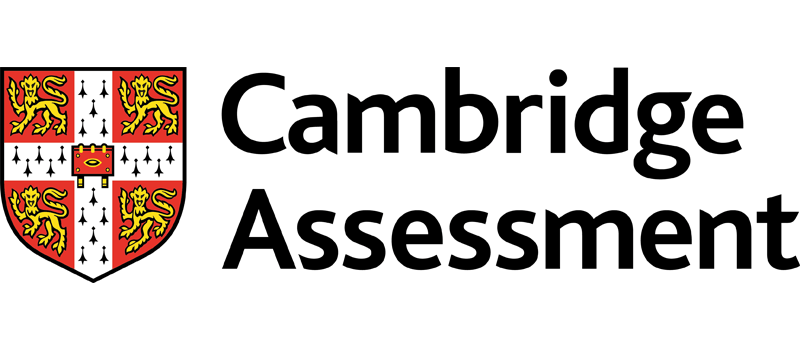
Corporate Governance in a Global Context
Course ID: 2508110101093ESH
Course Dates : 11/08/25 Course Duration : 5 Studying Day/s Course Location: London, UK
Language: Bilingual
Course Category: Professional and CPD Training Programs
Course Subcategories: Operations and Process Excellence
Course Certified By: ESHub CPD & LondonUni - Executive Management Training
* Professional Training and CPD Programs
Leading to:
Executive Diploma Certificate
Leading to:
Executive Mini Masters Certificate
Leading to
Executive Masters Certificate
Certification Will Be Issued From :
From London, United Kingdom
Course Fees: £5,120.30
Vat Not Included in the price. VAT may vary depending on the country where the course or workshop is held.
Click to Pay
Date has passed please contact us Sales@e-s-hub.com
Course Information
Introduction
Corporate governance has emerged as a cornerstone of organizational success, shaping how businesses operate, make decisions, and interact with stakeholders. In an increasingly interconnected global economy, the principles of corporate governance serve as a framework for ensuring accountability, transparency, and ethical behavior within organizations. For professionals navigating complex regulatory environments, shifting societal expectations, and heightened scrutiny from investors, mastering corporate governance is not merely advantageous—it is essential. The collapse of Enron in 2001 and more recent scandals like Wirecard’s financial mismanagement underscore the catastrophic consequences of weak governance structures. These examples highlight the need for robust systems that safeguard integrity while fostering sustainable growth.
The global nature of modern business introduces unique challenges to corporate governance. Multinational corporations must balance diverse legal frameworks, cultural norms, and stakeholder priorities across jurisdictions. This complexity often leads to gaps in knowledge and practice, particularly when organizations fail to adapt their governance models to local contexts. Furthermore, emerging trends such as environmental, social, and governance (ESG) criteria have redefined what constitutes effective governance. Organizations are now expected to integrate sustainability into their strategies, requiring leaders to adopt a broader perspective on value creation. Addressing these challenges demands a deep understanding of both theoretical foundations and practical applications of corporate governance.
This course bridges the gap between theory and practice by equipping participants with tools to navigate the intricacies of corporate governance in a globalized world. Drawing on established frameworks such as Cadbury’s Report, Sarbanes-Oxley Act, and King IV Principles, the program provides a comprehensive overview of best practices while emphasizing real-world applicability. Participants will explore case studies like Volkswagen’s emissions scandal, which illustrates the repercussions of poor governance, and Unilever’s commitment to ESG goals, showcasing how strong governance can drive innovation and trust. Such examples reinforce the importance of aligning governance strategies with organizational objectives.
For individuals, mastering corporate governance enhances career prospects by positioning them as trusted advisors capable of guiding organizations through turbulent times. Professionals equipped with this expertise become invaluable assets to boards, executive teams, and regulatory bodies. At the organizational level, sound governance reduces risks, improves decision-making, and strengthens relationships with shareholders and other stakeholders. Companies with strong governance frameworks tend to outperform peers financially, attract better talent, and enjoy enhanced reputations. These benefits underscore why investing in governance education yields significant returns for both individuals and institutions.
The relevance of corporate governance extends beyond traditional industries to sectors undergoing rapid transformation, such as technology, healthcare, and renewable energy. For instance, tech giants like Meta and Tesla face mounting pressure to address issues related to data privacy and board independence. Similarly, pharmaceutical companies grappling with vaccine distribution during pandemics must demonstrate accountability and transparency. By examining these scenarios, participants will gain insights into how governance principles apply across diverse fields, preparing them to tackle contemporary challenges effectively.
Ultimately, this course empowers participants to contribute meaningfully to their organizations’ long-term success. Whether addressing compliance requirements, designing governance frameworks, or evaluating performance metrics, attendees will leave equipped with actionable skills and strategic insights. As corporate governance continues to evolve, staying informed and adaptable becomes critical. This program ensures that participants remain at the forefront of industry developments, ready to lead with confidence and integrity.
Objectives
By attending this course, participants will be able to:
Analyze key theories and frameworks underpinning corporate governance, including Cadbury’s Report and OECD Guidelines.
Evaluate the impact of global regulations and standards on organizational governance practices.
Design governance structures tailored to specific industries and geographical contexts.
Apply ESG criteria to develop sustainable and inclusive governance strategies.
Implement risk management protocols to mitigate governance-related vulnerabilities.
Assess board effectiveness using established performance metrics and benchmarks.
Synthesize lessons from real-world case studies to propose innovative governance solutions.
Who Should Attend?
This course is ideal for:
Senior executives, board members, and directors seeking to enhance their governance capabilities.
Compliance officers and legal advisors responsible for ensuring adherence to regulatory standards.
Consultants and auditors specializing in organizational strategy and risk management.
HR professionals tasked with aligning governance policies with workforce dynamics.
Entrepreneurs and SME owners aiming to establish robust governance frameworks early in their ventures.
Training Method
• Pre-assessment
• Live group instruction
• Use of real-world examples, case studies and exercises
• Interactive participation and discussion
• Power point presentation, LCD and flip chart
• Group activities and tests
• Each participant receives a 7” Tablet containing a copy of the presentation, slides and handouts
• Post-assessment
Program Support
This program is supported by:
* Interactive discussions
* Role-play
* Case studies and highlight the techniques available to the participants.
Daily Agenda
Daily Schedule (Monday to Friday)
- 09:00 AM – 10:30 AM Technical Session 1
- 10:30 AM – 12:00 PM Technical Session 2
- 12:00 PM – 01:00 PM Technical Session 3
- 01:00 PM – 02:00 PM Lunch Break (If Applicable)
- Participants are expected to engage in guided self-study, reading, or personal reflection on the day’s content. This contributes toward the CPD accreditation and deepens conceptual understanding.
- 02:00 PM – 04:00 PM Self-Study & Reflection
Please Note:
- All training sessions are conducted from Monday to Friday, following the standard working week observed in the United Kingdom and European Union. Saturday and Sunday are official weekends and are not counted as part of the course duration.
- Coffee and refreshments are available on a floating basis throughout the morning. Participants may help themselves at their convenience to ensure an uninterrupted learning experience Provided if applicable and subject to course delivery arrangements.
- Lunch Provided if applicable and subject to course delivery arrangements.
Course Outlines
Foundations of Corporate Governance
Historical evolution of corporate governance principles.
Key frameworks: Cadbury’s Report, Sarbanes-Oxley Act, and King IV.
Role of boards and committees in governance.
Stakeholder vs. shareholder perspectives.
Day 2:
Global Regulatory Landscape
Overview of international governance standards (OECD, ICGN).
Cross-border compliance challenges.
Impact of regional laws on governance practices.
Case study: Volkswagen emissions scandal.
Day 3:
Integrating ESG Criteria
Understanding ESG dimensions and their significance.
Aligning ESG goals with corporate strategy.
Measuring and reporting ESG performance.
Case study: Unilever’s sustainability initiatives.
Day 4:
Risk Management and Board Effectiveness
Identifying governance-related risks.
Developing risk mitigation strategies.
Tools for assessing board performance.
Best practices for enhancing board diversity.
Day 5:
Emerging Trends and Future Directions
Digital transformation and its implications for governance.
Cybersecurity and data privacy considerations.
Preparing for future disruptions (e.g., climate change, AI).
Action planning: Applying learnings to participant organizations.



















































